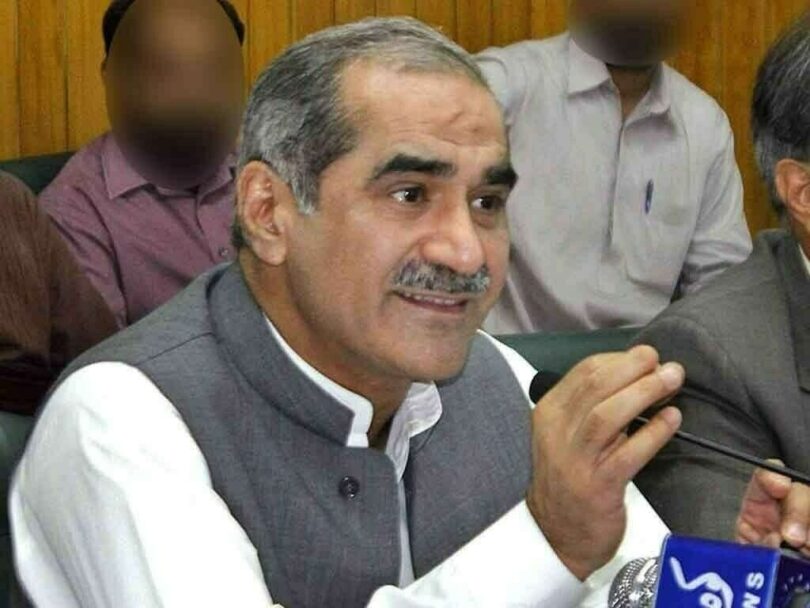Federal Minister for Railway and Aviation, Khawaja Saad Rafique has told the media that the government was taking measures to strengthen the country’s aviation industry and decided to outsource three major airports and signed a deal with the New York City administration to operationalize Roosevelt Hotel in the United States. According to the Minister, Karachi, Lahore, and Islamabad airports will be handed over to international operators for a certain period, and the airports will be returned to Pakistan with all the value addition done by the companies. Federal Minister assured that no Civil Aviation Authority (CAA) employee would lose his job, and their salaries/perks will not affect during this process. According to him, the government engaged the services of the International Finance Corporation (IFC), a World Bank subsidiary, to perform the outsourcing work.
Pakistan’s aviation industry has faced financial difficulties in recent years due to high operating costs, increasing fuel prices, inconsistent policies, mismanagement, and corruption in funds. The state-owned Pakistan International Airline (PIA), which would have to act as the national flying horse and lead the entire aviation industry fell victim to multiple issues, whereas poor safety culture, over-employment, government intervention, inadequate infrastructure, and unserviceability of operation fleet and bureaucratic governance remained at the forefront to push this prestigious airline into a failure and collapse. Similarly, the PIA failed to compete with its regional competitors including Emirate and Qatar Airlines as well as it could not maintain its domestic monopoly over private airlines which led to losing its market share in the international market and domestic routes. The successive governments were compelled to invest the hardened taxpayers’ money in the PIA to keep it flying, however, the PIA faced scrutiny over its compliance with international safety standards, leading to temporary bans and restrictions in various countries in Europe and North America.
The past governments used multiple strategies to revive the nose-down national flag career including the provision of bulk funds, recurrent attempts for privatization, and appointment of reputed civilian and military bureaucrats to rescue the national airline from complete failure but all those efforts could not bore the requisite fruit that the PIA gradually sank under the heavy load of its operational losses, over employment and corruption. The sale of Civil aviation and the PIA properties had been a lucrative business for the elite class that always tried to give away those precious units to their blued-eyed for free or at a nominal price. The saga of the Roosevelt Hotel came to the limelight once again. Leasing of national assets including airports, hotels, parks, and ports is not a new phenomenon in the world, because the closed hotel is continuously causing debt for the government on account of taxes, maintenance, and security of the building. However, the leasing process must be transparent and open so no case of corruption, kickbacks, commission, or fraud could happen in the contract.
Unfortunately, the majority of the past rulers dealt the national assets like their personal heirlooms and gave unnecessary concessions to foreign firms in mining, investment, and construction contracts that caused significant financial loss to the national exchequer and proved to be counterproductive for the country. The case of PIA’s New York property had always been highly controversial and multiple efforts for its privatization had caused tremendous public uproar and criticism in the past. Although Pakistan is facing the utmost financial constraints along with a persistent risk of an economic collapse. The coalition government must protect national interests while dealing with foreign firms instead of making the country a global pastureland for foreign investors, so the nation gets the optimum benefit of privatization, investment, and other endeavors being made by the governments. Ironically, no accountability forum, legal, or technical evaluation platform is currently available in the country that oversees such transactions as the mining contract of natural resources including gold, copper, or coal, the privatization of entities as well as leasing/ selling of government assets. Such endeavors mostly cost public suspicions, attract opposition from politicians, and usually end up in failure of the deal and payment of liability to foreign firms. Realistically, all state-owned entities including the PIA, Railway, Steel Mills, National Shipping Company, Pakistan Post, and the so-called mass transit systems in major cities are currently white elephants that continuously add a heavy burden on the national exchequer. The story of each institution starts with corruption and nepotism and ends with the same malady. Meanwhile, each government views these administrative issues through political prims that cause further delays and worsen the issue. Therefore, the government must constitute a forum comprising famed public leaders, civil society, and technical experts to ensure the transparent privatization of government entities, finalization of lucrative contracts, and other monetary deals, so the nation comes out of the persistent debt trap and economic frailty in the future.







